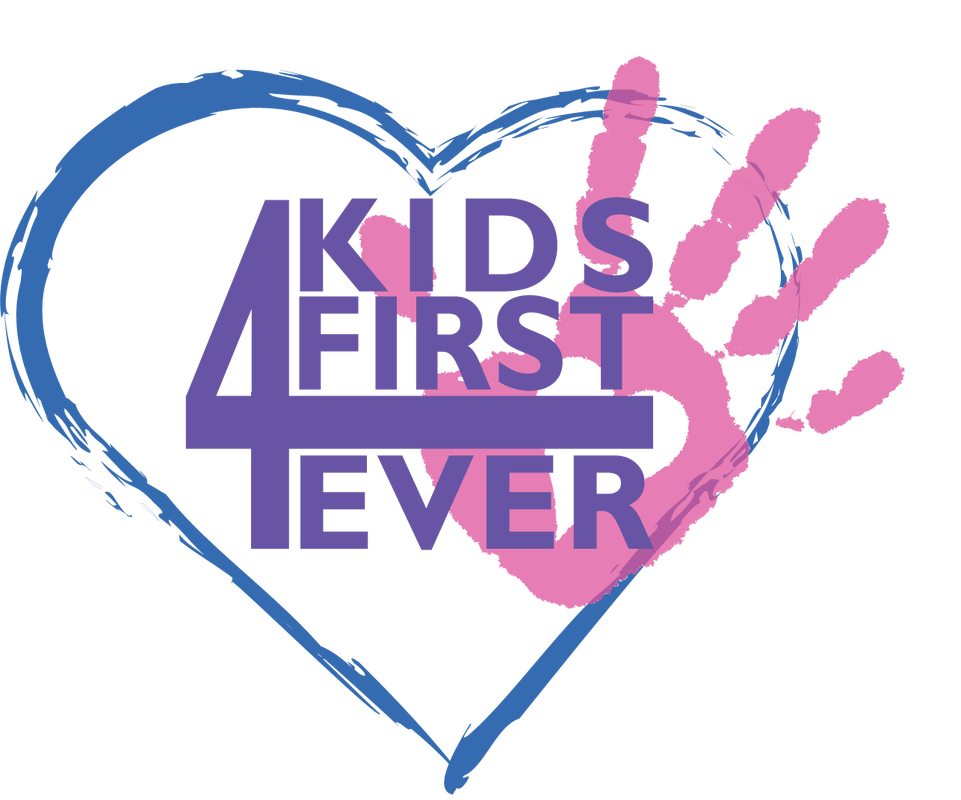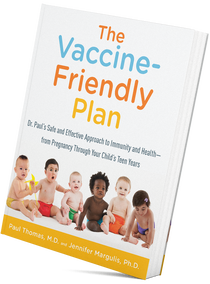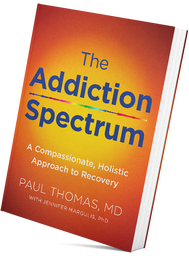PDF:Text:Dr. Paul 0:00
Dr. Pol and against the wind doctors and science under fire. This show is slightly different. I'm being interviewed. I'm going to cover the topics of RSV, influenza and COVID. What's going on? What do you need to know? And how can you be prepared for this upcoming winter, we're all three are hitting it once Bernadette closes us out with a very interesting take on the mindset of those in public health. They minimize vaccine dangers. They promote vaccine efficacy, and they maximize disease risk, completely distorting the actual information that's out there. Enjoy the show. Dr. Paul, coming to you from the heart. I'm going to talk to you about gratitude today. And first and foremost, I am grateful for you. Your support means the world to me, I'm going to share a card I got from a patient recently that just exemplifies the importance of this to meet Dr. Thomas, I want you to know how much our family appreciates you. Thank you for caring deeply for the health and well being of all the families who have been under your care. Thank you for being bold, and for shining a light in this dark world. I am so sorry for the disappointment, pushback, hatred and heartbreak that you've had to go through. But I praise God for how he is using you to stand up for truth. I can only imagine how hard in every way it is to do this. So my prayer for you is that you will remain and God's steadfast love, His love and promises that will never shake or crumble. No matter what enemy you are facing. That you will seek His wisdom and take pause to hear his voice. I pray that God will protect you and your family fiercely give you courage to do what he is asking and be filled with great joy. Thank you, Dr. Thomas. And they share their names. Who that touches me. And I have to tell you, this is one of probably hundreds, if not 1000 Such cards and letters and sentiments. And it's kept me going through these difficult times. And I am so grateful for all of you who support me. It gives me that steadfast, we're together. We're never giving up because we are being called to do something magnificent that our world is calling us to do. So thank you welcome folks against the wind. Didi Hoover joins me in studio. What the heck are you doing here? DeeDee Hoover LMT, PMT, CCT 2:43 Well, I am here because I'm the one as you know, that gets all the emails. And I have to tell everyone, first of all, this is our second time doing this. And you did a very good job the first time, I thought you did a good job of you. Thank you. So we get a lot of support. And I wanted to say that you have so much love and so much support coming in. And I know i i holler from one office to the other to you about that support. We also get a lot of questions. And right now, there's a huge amount of questions about this triple Dimick, this triple pandemic that's going on right now. And that is RSV, flu, and COVID a huge hit right now. So I just want to ask you some questions. And the first thing I want to talk about is RSV. So I would like to to explain what that is. And tell me about because we've been getting a ton of patients in and I think we've had one in our clinic here, even hospitalized this year. So I'd like for you to talk a little bit about RSV. People keep asking some of the questions about RSV are, you know, what do I need to look for? When do I need to see a doctor? And do the main one is you're talking about it is if they get a vaccine, should I run out and get this vaccine? Dr. Paul 3:54 Thank you for that question. I'm going to start with the last thing you mentioned. If they come up with an RSV vaccine, should you run out and get it? No. Here's why. They are trying to make an RSV vaccine on the mRNA platform, folks, they've been trying to do this for two decades. And they failed because of the nature of mRNA platform. It's just not been possible to make it work for viruses that mutate very quickly. That's why it failed for COVID it will fail for RSV for the same reason it has failed. They have this thing called immune enhancement that happens with that form of vaccination. And in the early trials they did for RSV they would vaccinate the animals right in the animal trials be it rats or ferrets or whatever. And it would look like the vaccine was okay safety wise. And then when those animals were re exposed with RSP a large percentage in some trials, all of them died. And it's a complicated topic that I've covered on another show. Dr. Ryan Cole covers it very nicely so check that out to review Do it. But this is not a virus that is going to be immune. It's you can't make a vaccine on an mRNA platform for RSV. At least not at this time, the technology is not ready, it got rushed for COVID. They're trying to rush it again for RSV. Don't let your kid or actually they're trying to do this for pregnant women. There's nothing worse than thinking about causing immune activation during pregnancy. We have studies showing that any kind of infection, viral infections in particular during pregnancy can cause problems with brain development. Why on this good green earth, would you intentionally activate the immune system while you're pregnant? It makes zero sense. So that was the long answer, which was the short answer was no. But I wanted to explain there's some real science behind why it's not a good idea. DeeDee Hoover LMT, PMT, CCT 5:46 No, thank you for answering that. But back to what So explain RSV, first of all, simply so that people understand that don't know what it is. Yeah, Dr. Paul 5:53 respiratory syncytial virus is that is what it stands for, is basically a cold. It's a virus that causes cold like symptoms, but it's a specifically Muco genic, which just means it makes you all mucousy. More so than I think other colds. And if you think about the size of airways, adults in the large children have a big trachea, big bronchioles, even their little or tubes are big enough that if they get a little mucousy, they they can handle it. But if it a little baby gets RSV, especially the preemies, they're the ones that have a terrible time because there's enough mucus to actually block airways, and so their oxygenation can dip significantly and potentially be dangerous. I don't want you to be scared of RSV, folks. I mean, if you have a extreme preemie, or a preemie, or newborn with significant heart or lung issues, yeah, stay away from it. Anybody that's sick. You know, it may not just be RSV, but influenza COVID, the whole list. And there's a long list of viruses, some bacteria that can cause lung infections, you don't want any of that if you are that vulnerable. And that's where you'll get a number of deaths every year from RSV. And it almost always ends up being people who have underlying high high risk those extreme preemies. People with heart lung problems. But yeah, RSV, I've known this since I was a pediatrician. 35 years ago, every winter, we see RSV, and rarely does anybody end up in the hospital. And really, you go to the hospital for one of two reasons. Either you can't drink anymore, you're so congested. You go to a nurse or take a bottle and your nose is plugged, it's congested. Now you plug in the mouth, they can't breathe. So they're just shoving gasping for air. So you go for IV hydration, or you go because you need oxygen, and actually had this great family in my practice from Italy. And they said, No respectfully Italian, I wish I could have done it in her accent. It leaves home without a pulse oximeter. This is the most important little tool you should all have at home. It works like this. Say it again. What is it, it's a pulse oximeter. It measures the oximeter blood just reads the oxygen in your blood. It can be hard to use on a newborn or a tiny infant, but you just push the start button, stick your finger in there on the red flashing light and hold still, and you start it starts to count the heartbeat boom. You have a 97 heartbeat, or no 9084 Well, you're relaxing. You're a little tense here to begin with, as I was but your actions 96 And that's not bad. normals, 97 to 100 I always knew you weren't normal. DeeDee Hoover LMT, PMT, CCT 8:38 Well, and I mean, it's I know that well. We're talking about RSV and everything I one of my questions is you've talked about it and children but I know with us being so exposed you were sick last week and I was is RSV something that affects adults, because I know everything you've been describing, I've been feeling and I know you've felt so. Dr. Paul 8:57 So yes, RSV will affect adults, but generally it's just a cold, okay, it could be a bad cold and RSV tends to last a little longer than most colds, your typical viral illness be at a cold or whatever the flu lasts for seven to 10 days. RSV peeks around day four to seven, and lasts for two to four weeks. And so I can't tell you how many patients I saw just this week, who had their kids have been sick for 1012 days, couple of them two, three weeks, and they're like frustrated to go do something. Well, that might just be the normal course of RSV or it could be you're absolutely right we are seeing more RSV, more COVID Well, definitely more influenza A and B actually all a so far in my practice in the last year interviewing me the day before I end my clinical practice in Oregon so I can speak as a clinician right now. We're just doing this interview a little early before we take a trip to speak but what I've been seeing in the clinic The last two three weeks, a huge number of positives for influenza A still getting positive COVID tests and plenty of RSV positive, it is actually happening. As they're saying on the news, I don't think it's nearly as scary as they make it out to be. Our news loves to be dramatic itself. But I'm not trying to minimize the fact that RSV and a preemie or an a very young infant who has heart conditions, you don't want that. But you don't need to be afraid of it. If you get adequate volumes of nutrition. So if you're a mama at home, breastfeeding, for example, you feed as much as you can, you tank that baby up as much as you possibly can, because that will keep them out of the hospital, right? Because they're hydrated enough, they're having enough wet diapers. Also, being able to get enough oxygen so that you don't have as much control over but you can certainly test it showed you the pulse ox that's something you can get on, you know, any pharmacy or online stores and have it at home to us. So you know, when you need to go to the hospital. If your baby is having a pulse ox close to 90, say 9192 or less. You should go be seen if you're if your doctor's office handles those sorts of things, as far as does go see your doctor, but oftentimes they don't you have to go to the hospital and just it may be that you need oxygen. DeeDee Hoover LMT, PMT, CCT 11:19 Okay. So with all of those things, it's November, did you know that Dr. Paul 11:26 it's almost the end of November? DeeDee Hoover LMT, PMT, CCT 11:28 So I don't remember seeing everything like this this soon. Can you speak to that? Because I know you've made a comment that normally it's December or January, I think when time you said owed peak is January, right? It's November. Dr. Paul 11:40 And in fact, it felt like we were peeking in early to mid November. And in some parts of the country. That's what happened. I saw a recent chart, I believe it was from the CDC, that went over the last many years of RSV influenza, and of course COVID. And what they showed was back in, up until 2019, we had a winter peak that was around December, January have RSV, influenza, and then it goes down by April or May it's gone. Every year you had that same peak 2021. No, RSV, no influenza, like, none. What, Where did it go, we're seeing anything, we weren't seeing anything. People weren't going to the hospital, they weren't going to their doctor's office, we were on lockdown for COVID. And the only testing that was being done for the most part was for COVID. And I remember we kept our office open the whole time. And I remember thinking what the heck Have they forgotten that there's a list of about 30 things that can cause fever, headaches, body aches, cough, but no, it was just COVID or otherwise. But they were tracking the data as we went started opening up. And you see this steady rise in RSV and influenza, not the spikes, like 2021. That winter, not the one we're entering. But the one before it was just a slow, steady rise, no peak. And I think that's just as as we saw more and more kids and kids were allowed to be together in schools, you start sharing these germs. But it's been a very abnormal sort of pattern. And I think it's just a function of one the quarantine and two. When you haven't been sick for two, three years and you haven't been mingling, you have two three years of babies being born for one thing whose immune systems have not been exercised at all. Right? So there, I mean, we used to see this with measles before the measles and chickenpox before the vaccines were introduced, especially measles every two, three years would be a big ol outbreak. And that's two or three years worth of newborns, who are up to now two or three years old, we've never had measles goes through the community. Now the immunity is good. And nothing for another two, three years. So we have those seasonal spikes. I don't know if that helps at all, but it's definitely DeeDee Hoover LMT, PMT, CCT 13:56 different. And so that brings us to your child gets RSV you've told us what to look for. So let's talk fever though because that seems to be a big one. I've will even get emails on what fever and I always wonder I may not see the email for one or two days and I'm like, oh gosh, your child. Why are you why are you sending an email? So talk about fever. Okay, and in children in general, but even especially like right now RSV is affecting a lot of babies in our clinic. And people don't know when to go to the hospital. Dr. Paul 14:25 Yeah. You go to the hospital if you need fluids or oxygen, right. Or if you're close to needing it, you're unsure. If you have a good clinic where you can go to and they can assess oxygen, they can assess hydration. Go to your regular doctor before you end up with the ER ers or slash sickest kids fever on the other hand, thank you for bringing that to our attention. Fever is your friend. Fever at? Yup, fever helps your body knock out the virus we've been taught to be afraid of feet Ever. And it's it's the wrong teaching. DeeDee Hoover LMT, PMT, CCT 15:02 So do you think part of that fear comes because we hear? I mean, as a mom when my son was younger, I heard that if your child gets a, I think I heard 104 105 Fever, that fever can kill them. I heard that. Dr. Paul 15:15 Yeah. No, not at 104 or five. I think if you get 206, seven, you're in trouble. That's, that's even a thing. I have not seen it, honestly. Okay, so DeeDee Hoover LMT, PMT, CCT 15:27 So let's talk about that 103 205 fever that we're seeing right now. Yeah, Dr. Paul 15:31 at 104 to five, your child will probably be delirious. And they're so out of it that you don't know if they've got meningitis, which is super rare, by the way. Or they've got a serious infection, right? That's making them just, yeah, not even be able to be responsive. So when it's that high, and they're delirious or not responding, well, you have to get it down as a diagnostic tool to see whether or not are they just delirious because they have a really high fever? If that's all in there, okay. So there's a really cool way of getting the fever down. How cool is it? Good, good. Oh, no pun intended, no pun intended. Well, you get a wet rag, or washcloth and you get it fairly damp. I mean, not dripping wet, but really moist. It could be slightly warm, because cold will shock the child, and you just pat all over their body and let that water evaporate. And it's called latent heat of evaporation. It just brings the fever down. And you can bring a fever down in five to 10 minutes. Like from 104 to 101. Like any age networks, probably haven't tried it on at all. They probably probably but DeeDee Hoover LMT, PMT, CCT 16:46 it's usually an older child like Dr. Paul 16:48 I mean, you got more body surface area, the older they are, although, DeeDee Hoover LMT, PMT, CCT 16:51 can you put them in a bath because I've heard you can put a child and be alert, Dr. Paul 16:55 lukewarm to coolish bath that would probably do the same thing. But I think allowing that evaporation is what really works. Wow. Also, the the counter to that is if mom has a fever and she's breastfeeding and she's got skin to skin with their baby but she's hot. Baby can get hot. Right? And we've had that happen. Their baby feels hot, they don't really forget that they're a bit warm too, right? And they take take the baby's temp and if they're less than six, eight weeks old and they have over 101.4 You got to go to the hospital. So it's like you just create a situation you get there and they take the time it's normal. Well it was up because of skin to skin that happens right after birth to right if mom gets a fever from the work of labor, you can get pretty warm. Babies born with a fever but within an hour or two, it's normal. I digressed. What were we talking about fevers don't be afraid of it folks. Also you can get it down with like I said the the pat dry I am not a fan of acetaminophen that's brand name is Tylenol. What Tylenol acetaminophen does is it blocks your and acetyl cysteine NAC and N acetyl. Cysteine is the precursor sorry, it blocks glutathione glutathione is your major molecule for not only fighting the infection as a major antioxidant, but also for detoxifying. So when you block that pathway from an acetylcysteine NAC to glutathione with the acetaminophen, you're actually making your child or your patient more at risk for the infection. Which that makes no sense, right? So if if it's safe to use ibuprofen, if you have to use anything you would use that. It's not supposed to be used under six months of age. But if you got under six months of age, just do the pet thing anyway. Yeah. DeeDee Hoover LMT, PMT, CCT 18:38 So I'm gonna have you because you said it quite quickly. And I think it's really important. Please explain again, why Tylenol is dangerous to give your child to bring a fever down. Dr. Paul 18:49 So Tylenol, which is acetaminophen has a very narrow therapeutic window. And what that means is you need this much for it to work. But if you have this much, it's toxic, right? So it's very easy to get toxic. If you happen to be dehydrated, you can be toxic at these normal doses. And what are you when you're sick, you tend to be dehydrated. So it's it's really not a good thing to be giving at all. Probably shouldn't be over the counter. I think if they tried to bring that to market today, it would not make it it would have to be a prescription drug because of that risky nature of that narrow window, therapeutic window. In your body. We have all these metabolic pathways every cell can make glutathione which is a major antioxidant, DeeDee Hoover LMT, PMT, CCT 19:36 okay, major antioxidant in the house, something your body needs, your body Dr. Paul 19:39 needs that to fight infection. Okay, you've heard of vitamin C being helpful, especially when you're sick. That's an antioxidant. Glutathione and vitamin C are kind of working together. Okay, this one of them. It really does affect your ability to fight infection. So DeeDee Hoover LMT, PMT, CCT 19:54 if those two things are helping fight infection, and you give something like acetaminophen and it blocks that That's, that's why it's not necessarily helpful. And again, if it reaches a top level, right, I just wanted to go through that slowly because I that's another question that I get asked constantly. Well, I've heard Doctor policy, you know, not to do acetaminophen or but yet every other doctor says, Give your baby tylenol to bring down a fever. So first thing Dr. Paul 20:18 they say it makes no sense. Okay. So I think if you have acetaminophen in your house, throw it away. Not not in the landfills. So hard. What do you what do you do with all these pharmaceuticals that you don't need? I know how to put them in the rivers and streams. I don't know if you want to bury them, because then they're going to end up there. So conundrum there are places to dispense IV meds safely, right? Yeah. DeeDee Hoover LMT, PMT, CCT 20:38 Okay. So these kids have cold viruses, no matter what it is, and they're sick. When a child and this is something that when I was responding back with somebody through emails, and explained, again, not giving any advice or anything, but explaining why you, you wouldn't say not to use acetaminophen, they said What's difficult is IV, the ibuprofen doesn't work as quickly. And then there'll be the child will be kind of, you know, doesn't look like they feel good. There'll be lethargic, kind of because of the fever. Isn't that okay? I think we get as parents we get concerned, I don't want my child to look sick. I don't want my child to be sick. But isn't the point is the ibuprofen will help that fever from becoming dangerous, but the body needs to fight the infection in order to get rid of it. Dr. Paul 21:25 So your this goes back to fevers your friend, okay? We're not anti fever. So okay, you know, as long as it's below 104, let's just use that as our cutoff, which is 40 degrees centigrade, 104 Fahrenheit, and your child is not lethargic and out of it. Right. If they're lethargic and out of it, you need to get that fever down, right to make sure they're in there, that they're okay. Right, that's DeeDee Hoover LMT, PMT, CCT 21:49 when they give Tylenol, or I'm sorry, Sita monofin. That's when parents feel like they need Dr. Paul 21:54 to because they can't get it, get it down, right, sponge them down. DeeDee Hoover LMT, PMT, CCT 21:57 Okay. And I think that's what I'm, that's what I'm trying to say is I think that when the normal that we hear from our pediatrician and most pediatrician is you don't want your child to you know, you don't want them to look sick or be sick or feel sick or become lethargic. So to get that fever down, you give them Tylenol, and they feel better. I see that all the time with my friends even with their kids. So I guess that's not coming back to you. That's the whole point is there's other ways to do that. With the cold, Dr. Paul 22:28 wet cloth, let the water evaporate, you can probably get it down in 510 minutes, or for as long as necessary until the ibuprofen kicks in if you're needing to get it down. But here's the key I don't want people to miss and all this. We've been talking a lot about it. If you can get it down in your kid looks fine. You can let it go back up. Right, you already know they're fine. Maybe twice a day you bring it down enough to be sure they're still fine. Okay, right. Parent trick, if you've raised kids, and you gotta go to work, the next day you need your sleep, I would always dose with a dose of ibuprofen before I went to bed. Very selfish that way. Because it lasts for six to eight hours. And that's what a lot all I need for sleep is six or seven hours. So I got my sleep, I'm functioning the next day my kids slept better because they didn't have high fevers in the middle of the night. The trick you should not do that I'm guilty of was sometimes ibuprofen out the door so they don't have DeeDee Hoover LMT, PMT, CCT 23:19 school. Oh my God. Now we know why there's so much fiction going around. So let's bring it back to influenza and COVID and all these things. Can your child get all three? That was another question. Of course theoretically, the same time. Dr. Paul 23:37 Theoretically you could. I have not ever seen that. Okay, so when I used to do those recipe paths and they were testing for about 30 Different organisms, which included a Coronavirus and influenza A and B and RSV. mycoplasma, rhinovirus, enterovirus. enteroviruses, you name it. Sometimes you would get two or three, right, but it was usually remember your swabbing the nose. Now, there's a lot of stuff going on in there. Not all of it is actually causing you problems. Oh, gotcha. You are colonized also with various organisms that are just living at peace in your little cesspool of your nose. So the fact that you grew more than one thing shouldn't be alarming. Okay. Generally it would be just one or two though, okay, and we know which things are more problematic. You're sicker with influenza, you're sicker with RSV. Early on COVID for high risk people was a concern. It isn't. It's so interesting. of the big three because I've been testing all three for the last few weeks in my clinic. The one I'm worried the least about as COVID Okay, when parents get a COVID Oh, yeah, that he was the least sick with COVID of all of the sicker with influenza A sicker with RSV sicker with some Things that aren't any of those three, right? So that fear of COVID can just go away. We don't need your COVID help anymore, we never needed it to begin with. DeeDee Hoover LMT, PMT, CCT 25:11 And, and with that you're referring to the vaccine because there are protocols, and there are things to deal with it. And what I've noticed in the clinic that I'd like you to address, and one of the people who emailed had actually just shared that they appreciated you saying that you didn't feel like this COVID shot for children would be helpful that especially those that got it in the last six months, the younger ones, that those kids, it could affect their immune system, the kids that a lot of the kids that we're seeing in a lot of my friends, kids that got the shot, they're really struggling the season with all of these other issues with influenza. One child is very, very sick with influenza, and they had had this shot, do you think that that's part of it? Is the kids even the older ones who are getting sick now that maybe wouldn't have because they had the vaccine? Do you think that has to do with an immune system? Dr. Paul 26:03 Absolutely. And I've had several guests speak to this, the vaccines in general, but the COVID jab in particular, really does a number on shifting your immune system into the make antibody side of the immune system. So away from your innate, inborn T cell immunity, if you will, and shifts it to B. So we're going to make antibodies, you've got to remember antibodies are the second line of defense, they're the backup, if, if an infection gets through and you become infected, it's only then that you make antibodies. And so shifting the making antibodies actually does some harm. Because now if you get re exposed to that disease, and it enters because your innate immune system, your T cell immunity is not working as well, which is what these shots are doing. You get a massive response. And this is this massive inflammation where I think we're seeing the myocarditis, but clotting problems, the adult Death Syndrome, people just dropping dead. It's a massive release of cytokines inflammatory and what have your immune systems on fire. And it's not natural. So the advice at this point for COVID jabs for sure going forward, No way No child should get them. And most of the really well informed doctors who are dealing with this are saying nobody, period. DeeDee Hoover LMT, PMT, CCT 27:32 Okay. Well, thank you for answering questions, again, most of them right now. And on the last one, we talked about polio, I think when so many things are going around. And he always talks openly and freely about these things. It's very helpful and very supportive. But I do think that it is a real fear for parents, and especially moms, we seem to be like, we don't want our kids to be sick. And when you listen to the news, and you see children outside of hospitals in these beds, because they're at capacity and all these things that are happening. That's a real fear. Yeah. So just a final note, what can you say to parents, for me, it's it's faith over fear, you just have to have faith over fear. What is it as a doctor? Dr. Paul 28:17 So I agree with faith over fear. But here's the great news, there are a whole host of things you can do. One to prevent even getting these infections. Number one on that list is vitamin D. Okay? If they had just given a care package to every citizen in the USA, for enough vitamin d3 With que tu maybe add a little magnesium and zinc to that we wouldn't have had an outbreak or epidemic at all, I'm pretty sure of that. So make sure your vitamin D status is optimal, not just normal, but optimal. And every good doctor I've talked to agrees with me that's 50 to 80 micrograms per liter, per milliliter, sorry. And that's the normal in the US measurement. DeeDee Hoover LMT, PMT, CCT 29:04 So you're not prescribing you're diagnosing No, no, Dr. Paul 29:06 this is just informational, run it by your clinicians. You can go to the FL CCC, the frontline Critical Care Alliance docs and actually pull out Dr. Paul Alexander substack recently put out a really comprehensive doc document about what you can do. They have the eye prevent protocol. I mean, it's like use mouthwash. You can use a nose spray, you can use Popova dine iodine spray, just make it dilute enough. So it's see through Brown and flush your nose twice a day. Whatever gets in there, whether it's COVID, flu, RSV, it's not getting past there, you're gonna knock it out, kill it on the spot before it enters your body. He's talks about vitamin D, zinc 20 to 50 micrograms per deciliter. Vitamin C 500. Twice a day. If you're an adult, you can go lower if you're younger. You can go way more if you can tolerate it. If you're older melatonin it actually is an antioxidant it helps reduce binding to the ACE receptors and Interesting enough, this same protocol that's been so successful with COVID actually works for RSV. Those two viruses actually have a lot of similarities. Elderberry, you've heard of it before, I would add elderberry. Just when you're sick, it's not something you need to take all the time. Same with resveratrol and quercetin. These help these zinc iontophoresis. It just, it allows your immune system be so much more robust. And believe it or not ivermectin at that point, two milligrams per kilogram, couple times a week will prevent infection from RSV COVID, probably influenza as well. And acetyl cysteine we talked about and then the last and hardest to get in the USA in the winter is sunlight. I hope you will do a lot of these things. Be prepared. And you don't need to be fearful. You can have incredible faith when you've also done your homework and you've prepared. DeeDee Hoover LMT, PMT, CCT 30:50 So keep sending in your questions every once in a while we'll have these little chats so that we can answer some of those questions for you. And I don't know if it's okay to say this or not. But upcoming because you've got one more shift as a medical doctor here in in Oregon, you're going to be doing some wellness coaching, to help with a lot of people who want to connect with you personally, and be able to really hear about how to advocate for yourself and your own health and your own wellness. So stay tuned. Dr. Paul 31:24 It's kids first forever. This is my partner in crime right here at Hoover. So folks, we're starting something special d&i, it's called Kids First forever, you've got a kids first forever.com, that website is going to be developing. And we will bring everything we possibly can to the world at that site, looking forward to connecting with you, and sharing this journey with you. DeeDee Hoover LMT, PMT, CCT 31:48 And it's kids first forever, the number four ever.com. And you can go and sign up now to be receiving our newsletters. When we start getting everything together and organized. We'll be sending out newsletters to let you know how to connect with us Dr. Paul 32:03 foreign kids first forever stands for spiritual, DeeDee Hoover LMT, PMT, CCT 32:06 emotional, physical, and mental because all four of those areas are important. Dr. Paul 32:14 There you have it, folks. See you next time. Welcome back to against the wind. Bernadette, it's always great to have you I understand today you're going to talk to us about the mindset of people in public health. I'm eager to hear what you've got to say. Bernadette Pajer 32:32 Yeah, thank you. Well, you know, it's so important when we're on this mission to to really understand what we're up against. Because, you know, the while there's some demons out there, as far as who know, bad products and bad policy, the majority, hundreds, literally hundreds of 1000s of individuals working in public health have good hearts, and they mean well. But their particular mindset has been directly influenced by really to use the term misinformation. So I wanted to share with you this paper that was published in The Lancet, it is an opinion piece. But it really gives insight into the mindset of people in public health. They want to control communicable infectious contagious disease. And so in this just this was published in April of 2022 in The Lancet vaccination and natural immunity, advantages and risks as a matter of public health policy. So you'll see here they looked at both, and they say although both methods, natural immunity and vaccination provide some level of immunization, they create substantially different concerns for policy and substantially different risks for the individual. As natural immunity requires becoming infected. Their contrast should consider medical science, including the relative protection offered by each pathway. However, the larger debate must also address practical and logistical issues when applying immunization requirements through public policy. So you know, you and I as individuals making our own health decisions, we're thinking about what's best for me, what's my individual risks? can I overcome the disease? Will I develop natural immunity? How long does it last? That's that's how we base our decision for ourselves and our families. Public health has to take this larger view of what can we control? What can we put in policy that we can find, and that we can control? Dr. Paul 34:40 Right. And I think you you brought up in the beginning a very important point. And this is true for how most doctors think as well, most MDs, were true trained, that vaccines are safe. And so we don't look at side effects. And we're trained that they're effective. When and Back certainly with the SARS cov. Two as a great illustration, the effectiveness is is horrendous. Bernadette Pajer 35:06 Yes, exactly it, it quickly goes to negative efficacy, which makes it absolutely not out not just useless but dangerous. So, so it's highlighted in the next thing I've got highlighted there it says For most the scientific evidence must be considered specific to SARS. cov to some results suggests that vaccine induced immunity is more effective. Other results suggest that natural immunity is more effective. So it's good. They're reading all the studies out there. Some findings estimate both as roughly equal, but then we get down to risk exposure is the first issue for public health to consider. Notably, each pathway to immunity exposes individuals to different levels of risk. People could have adverse reactions to vaccines, or severe outcomes due to infection. Well, that's absolutely agreed right. This is common sense discussion. But we then we get to the sentence adverse effects have been minimal for COVID 19 vaccines, how in the world unless they are living, which they apparently are in the bubble that considers everything published, it bears all of the science showing the dangers, the lipid nanoparticles, Emma RNA generated spike, you know, everything that we're seeing, how blind are they to Dr. Paul 36:26 the astounding, I mean, we know the increase huge signal and myocarditis, a whole new syndrome, adult Sudden Death Syndrome. I mean, you've seen athletes dropping dead on the soccer fields. And these are not isolated cases, the literature is full of the horrendous amount of side effects from this jab. Bernadette Pajer 36:47 Yes. And this segment is be the news, right? I'm trying to empower people. This shows that there is, you know, as much as we are censored, the people who are being blocked most from the information we know, are people in public health. So we must continue, you know, educating public health, eventually somebody will wake up and listen to what we're saying. So let's continue that. And then they go on to say that the SARS cov. SARS, cov to exposure, meanwhile, carries significant and well documented dangers. Well, that is somewhat true, but also misleading. And because SARS cov. Two holds dangerous if you don't have adequate levels of vitamin D, and zinc and glutathione. And if you don't have early treatment protocols at the ready to prevent severe disease, and these are things that public health is not even mentioning, they're not dealing with that is another avenue that must be opened up into public health. And then they talk about reliability. How do you build policy around people getting sick, you don't know if they get sick, you don't know if they get re exposed, and so they feel completely out of control. And I love the sentence here, vaccination uses the same formula each time the same dosage and with an identifiable date of vaccination. Winning immunity can be documented, documented with high reliability. natural immunity is highly variable by comparison. And public health people who are trying to set policy they don't like variability. They don't like individuality. They want one size fits all approach, whether it works or not. Dr. Paul 38:39 I'm smiling because okay, we've got data that the vaccine is not giving lasting protection. And while natural immunity, sure it is variable, but it's giving very long lasting protection. Who cares if it's one year or 30 years? That's a whole lot better than three to five months. That's all you get with the COVID jab. Bernadette Pajer 38:59 Yeah, if you get any at all, and if it all goes to negative and the risks, I mean, the thing is, you know what it is, it's just it's absurd. But but you know, you I sent the earnestness and these individuals because they're having conversations that need to be public. I would love to have people on stage, having this dialogue and then presenting the science on each side, because this is really important. And then sustainment is the third and again, boosters for natural infections are more difficult to coordinate. Well, especially if the booster is natural exposure. Right, which is how colds and flus generally build immunity. You only typically get if you're not being exposed to vaccine products, the flu like maybe every decade or 20 years, because every exposure then makes you more resilient for many years forward and then it changes enough that then you you know, you might get symptomatic disease after certain point, but you can't control natural boosters. But you can control when you're going to give those boosters to the public if you've got a program. And so that's the mindset that control the paternalistic control. You know how? So Dr. Paul, how do we help public health let go of their fear of not being in control. They only have this fear over vaccine targeted infections, you don't hear the panic and lack of control over the common cold, Dr. Paul 40:38 or the hundreds or 1000s of infections that we don't have a vaccine for. There's no concern for those. I would say, as I listened to you presenting this, and it rings true this is this is how doctors and public health officials think and in fact, government officials who are helping set policy that they shouldn't be involved with. But anyway, they don't understand natural immunity, they don't understand the data. So it seems to me and you're more involved with going to legislatures, and, you know, trying to give people good information. But it seems like the only way forward is to present good information. So where can people go to get that good information? Bernadette Pajer 41:22 Yeah, well, you we need good information. We need to continue to educate the legislators and public health, but it's going to come from the individuals, when enough of the population knows the truth about each individual that can product, real health, early treatment, sustaining health, all of that, then there's going to be all this non compliance with policy. Right? So all of these educational avenues have to come forward. And where do you get good information? Well, you get it from Dr. Pol. You get it from Children's Health defense, who links you to good science and good doctors, you get it from the FL CCC, the frontline critical care COVID-19, critical care specialists are going to have to change their name eventually in tic COVID out of there, because they're branching into flu and RSV. Now, it's wonderful, what they're doing. To help people understand how you can protect yourself from severe disease from other infections. You go to your trusted health care provider, somebody who's aligned with you and understanding how brilliant your God given immune system is to protecting you. Dr. Paul 42:35 And I would add, when we say trusted healthcare provider, we are really talking about, as you said, Someone aligned with your beliefs. But let's say you're watching this and you're not sure where you stand on vaccines, you at least want a doctor who's willing to let you be in charge in charge. You're allowed to be the decision maker about what happens as you get informed. Because too many doctors are just you do it my way are out the door. Yes, paternalism that was gone back when I was in medical school, they were saying that's the worst kind of medicine. And yet, that's what we're going back to at least when you're talking about vaccines and pharma products. Bernadette Pajer 43:07 Well, yeah, we're going back to that. But it's it's less an attitude that kind of came with the profession and the white coat and I can do this kind of thing. It's it's worse than that, because it's coming top down, where major entities are telling doctors what they can and cannot do or say we've got that law in California, silencing doctors, we've got the oh, that starts with an F the Federation of medical boards, that is telling nurses, doctors, all practitioners what they can and cannot say and do. Dr. Paul 43:47 Yeah, they sent out that letter last year to all the boards, basically stating that if doctors are not following the approved narrative, they are participating in disinformation and you should consider taking their license. So it's it's incredible pressure on doctors, if you're trying to support your family, and you don't know anything else. I mean, I I remember when I was first realizing I could lose my license, which of course now I have thinking, wow, how would I support my family? And when I was younger, it was a real factor in me staying a little silent about what I knew I shared the truth with my patients, but I wasn't out there on blast trying to tell the world. Yeah, because of the consequences. At this point, I don't care about the consequences. So yeah, let's go and let's let the world know what's really going on. Listen to people who have nothing to lose, Bernadette Pajer 44:37 listen to people who exactly right and and two things should give you hope. Well, one is more and more people are joining you, Dr. Paul. And we really are at that point of medical history of health history where everybody who has something to risk and is being threatened needs to stand up because if everybody rises together, then you You all will be heard, they can't silence you all. And we can take this back. So that's really important. And there is a growing parallel health system being developed. Dr. Pierre Korea's Got an online medical service. Now, there's the wellness company, Dr. Peter McCullough and others have founded this. And there's, there's multiple numbers, we should do an episode sometime and gathering more and more. And, you know, at first, it's going to be difficult, because, you know, they're not a lot of these places aren't taking insurance, and it's going to be an out of pocket expense. And eventually, we have to find a way that, you know, anybody can go to them, even, you know, not being cost prohibitive. But in the meantime, if you can afford it, support these parallel medical systems that are that are going forward Dr. Paul 45:53 that represent we will need parallel insurance products that will cover Yeah, alternative a parallel system. And it's, we're working on this, folks. If you are a health care professional, and you're in feeling you're in this bind of I'm going to lose my career, or destroy my career, but you you know what you need to be doing, I would just urge you to do it, you need to do anyway. Because if you don't think about the magnitude of stress, internal, it's just, if you're living from your soul at all, if you're connected at all, to spirit, you can't do it. I mean, so you have to disconnect. And where does that take you? So grab hold of the truth, grab hold of the knowledge that you already have. And don't be shy, be bold, stick to the truth because it wins in the end. And we're real close, folks. If the House of Cards is going to fall apart, and it's coming quickly. Bernadette Pajer 46:50 Yeah. You made me pretty emotional with that. Dr. Paul, amen. I hope everybody's listening and take see. Thank you. Thank you, Bernadette. Dr. Paul 47:06 Dr. Paul, thanks for watching the show. Please visit doctors and science.com There you can access our members only section. This show is member supported. We don't have to take sponsors. We don't have to have anybody controlling the content of our show. This is a huge perk most people aren't aware of your membership gives you access to my eBooks, transcripts of every show, PowerPoints from talks I'm giving around the country and live bonus peeks at behind the scenes work. We're doing my off the cuff thoughts and reviews on current events. Your support makes all this possible. Thank you. Help me spread the truth and share this on social media and with your friends at doctors and science.com. I look forward to running with you against the wind. Go to our website doctors and science.com Sign up. Donate if you can. And let's make this the weekly show the nation has been waiting for. I'm Dr. Paul Transcribed by https://otter.ai Support Dr. Paul:TAKE ADVANTAGE OF DR PAUL'S 25% PROFESSIONAL DISCOUNT APPLIED AT CHECKOUT
|
|
Dr. Paul's Safe and Effective Approach to Immunity and Health- from Pregnancy Through Your Child's Teen Years.
The Vaccine-Friendly Plan is a place to start researching your decision on whether or not to vaccinate according to the CDC recommendations.
|
The Vaccine-Friendly Plan
Dr. Paul's book, The Vaccine-Friendly Plan, may not align with his latest findings on the Vaxxed-Unvaxxed data. However, it still serves as a valuable tool for those who follow the CDC schedule. The book offers peer-reviewed information encouraging parents and guardians to think critically about vaccine decisions. While Dr. Paul cautions against following the Vaccine-Friendly Plan, it can still be a helpful resource for those seeking a starting point for their vaccine journey.
Dr. Paul's research: https://www.mdpi.com/1660-4601/17/22/8674/pdf, though wrongfully retracted as shown in this study: Revisiting Excess Diagnoses of Illnesses and Conditions in Children Whose Parents Provided Informed Permission to Vaccinate clearly shows that those children who were not vaccinated were much healthier than those who followed the Vaccine-Friendly Plan. |
Don't stop there. Watch show's like: With the Wind: SCIENCE Revealed, The HighWire, & CHD-TV | Childrens Health Defense
The Addiction Spectrum
Opiate addiction is the single most significant public health crisis facing Americans—it affects over 2 million people and kills 115 of them every day.
|
Share with your Friends & Family
Comments are closed.
Archives
July 2024
June 2024
May 2024
April 2024
March 2024
February 2024
January 2024
November 2023
October 2023
September 2023
August 2023
June 2023
May 2023
April 2023
March 2023
February 2023
January 2023
December 2022
November 2022
October 2022
September 2022
August 2022
July 2022
June 2022
May 2022
April 2022
March 2022
February 2022
January 2022
December 2021
November 2021
October 2021
September 2021
August 2021
July 2021
June 2021
May 2021
April 2021
March 2021
February 2021











 RSS Feed
RSS Feed
